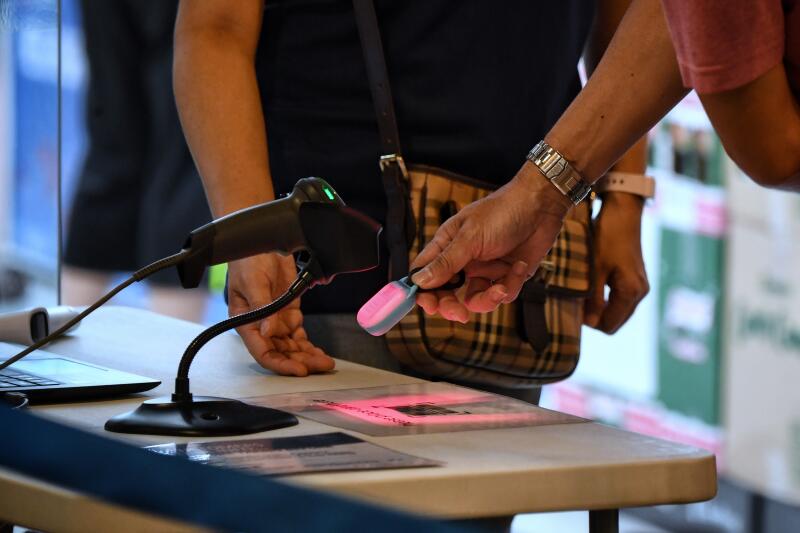Govt made mistake by not being upfront about TraceTogether data use; people accept explanation: PM Lee
Sign up now: Get ST's newsletters delivered to your inbox

The TraceTogether programme had come under the spotlight when it was revealed that its data could be used for criminal investigations.
PHOTO: ST FILE
Follow topic:
SINGAPORE - The Government made a mistake by not being upfront about how TraceTogether data can be used for criminal investigations, but it has since passed a law to restrict its use to serious crimes, and will delete the information after the pandemic is over, Prime Minister Lee Hsien Loong said.
And people have accepted this, Mr Lee added in an interview with the BBC aired on Sunday (March 14).
He noted that today, there are all kinds of apps that track one's whereabouts, and such data is resold - reflecting how privacy is not the same as it once was.
The TraceTogether programme, which identifies people in close contact with a Covid-19 patient via Bluetooth, came under the spotlight earlier this year when it was revealed that its data could be used for criminal investigations, despite earlier assurances that it would be used solely for contact tracing.
The public backlash prompted the Government to enact legislation to restrict the use of contact tracing data, including that obtained under SafeEntry, to investigations of seven categories of serious crimes such as murder, terrorism, rape and armed robbery.
Said Mr Lee of the episode: "I think we made a mistake. This app was designed for contact tracing and for pandemic purposes. But under the law, the police have powers to ask for information for criminal investigations and police investigations, and it covered this app.
"We should have said so upfront. We did not, and we came out and said so."
In the interview, Mr Lee acknowledged that there was anxiety and a strong reaction from the disclosures on TraceTogether.
Reiterating assurances given by other ministers, he said that after the pandemic is over, the TraceTogether data that had been collected will be deleted.
"I think people have accepted that, and we will be able to live with this," he added.
Other countries are also looking at surveillance or contact tracing programmes, and Mr Lee was asked if Covid-19 is a gateway to a global situation where surveillance is more acceptable to people and useful for governments.
He replied that it was not just the pandemic, but also the modern world.
Even without surveillance apps, there are all kinds of apps which track where people are and what they do, and Mr Lee pointed out that the owners of these apps collect the information and often resell them.
He added that compared with the days before the Internet, Wi-Fi and Google image search, privacy is not the same anymore, anywhere in the world.
This is something that people are getting used to, and something societies have to find ways to deal with in order to protect the legitimate concerns which people have, that this is going to be used against them, he noted.
Said Mr Lee: "There is a certain tension between individual rights and privacies, and our need to work together as a society and a community and to trust one another."

